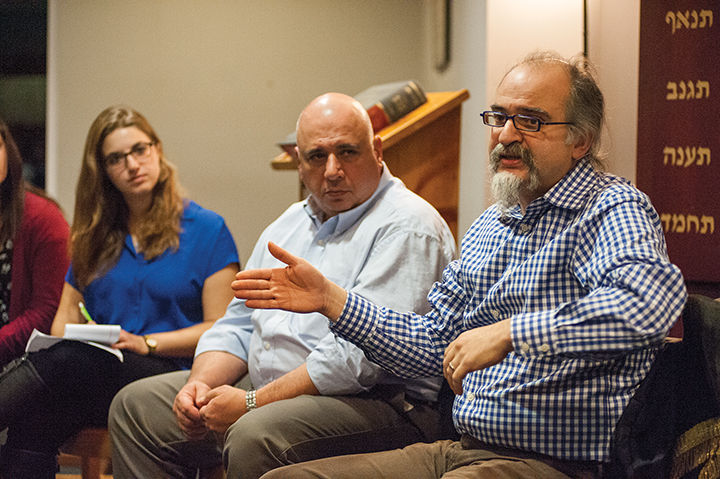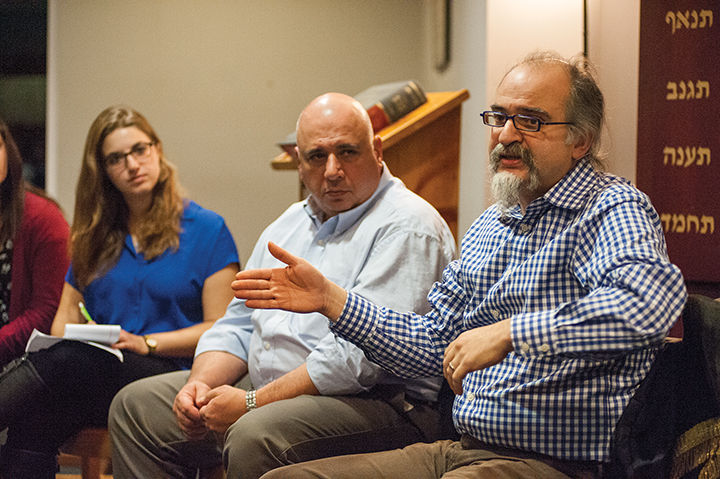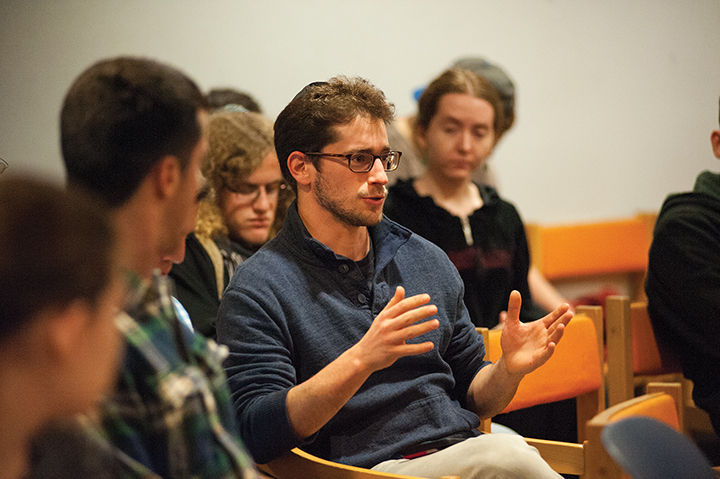Amidst the recent escalation of violence in East Jerusalem, an Israeli man and a Palestinian man joined a small crowd at Hillel last night to discuss prospects for peace in the Middle East.
Ghaith Al-Omari, executive director of the American Task Force on Palestine, and Ori Nir, a spokesman for Americans for Peace Now, sparked a dialogue about the ongoing conflict at the J Street UMD event with relatively neutral dialogue.
Al-Omari, a Palestinian, saved most of his criticism for Palestinian President Mahmoud Abbas. He said Abbas has failed to condemn violence among Palestinians, much of which is rooted in Jewish Israelis’ building settlements and buying property in East Jerusalem.
Throughout November, a series of violent confrontations took place between Palestinians and Israelis in Jerusalem. In one incident, a Palestinian resident of the city drove a van into a group of pedestrians. In another attack on the Temple Mount, a group of Palestinians threw rocks and Molotov cocktails at police.
“It is very important to condemn [violence] and set the right tone,” Al-Omari said of the Palestinian Authority’s reaction to Arab riots in East Jerusalem. “Not because they can dissuade the terrorists – they can’t. But it is a question of laying a marker of intimacy in your own society. That’s what, sadly, we are in short supply of.”
Nir, who described himself as a liberal Israeli, weighed in on Israeli Prime Minister Benjamin Netanyahu’s decision to fire two senior ministers of the Knesset, the legislative branch of Israel’s government this week. Netanyahu, who fired Finance Minister Yair Lapid and Justice Minister Tzipi Livni, said in a news conference yesterday that he found the nation “impossible to lead” under the government’s circumstances.
The move effectively dissolves the Israeli government and calls for the start of an election cycle.
The collapse of Netanyahu’s coalition, Nir said, was likely caused by the reintroduction of a bill that would legally establish Israel as a Jewish-nation state and put Hebrew as Israel’s official language. Nir said many Arab people living in Israel might see that bill, if passed into law, as a slap in the face.
“There was a great deal of opposition to the bill and to Netanyahu’s initiative to sort of ram it through the legislative process,” Nir said. “Former President [Shimon] Peres came out against it. There is a whole group of people who opposed it, including members of Netanyahu’s cabinet – including Livni and Lapid.”
Nir and Al-Omari both said they expect Netanyahu to form a more right-wing coalition — and, as a result, a more hardline stance regarding Palestinians.
But the Palestinian people must be prepared to work with Israelis no matter who is in charge, Al-Omari said.
“No matter who we end up with in Israel – I think for anyone who is interested in a two-state solution – we have to find ways to deal with any government we have in Israel, from a Palestinian point of view,” Al-Omari said.
J Street outreach and events chair Ariel Lanes, one of the event’s moderators, said she found the discussion to be an eye-opening look into the politics surrounding the Israeli-Palestinian conflict.
“Everyone looked really engaged. I was excited about that,” Lanes said. “We just wanted to remind people that even in times when there’s a lot of violence and chaos going on, there are still prospects for peace.”
Ghaith al-Omari speaks at a discussion on the future of the Israeli-Palestinian conflict hosted by J Street UMD and held in the Rosenbloom Hillel Center on Tuesday.
Senior Mordy Labaton asks a question at a discussion on the future of the Israeli-Palestinian conflict hosted by J Street UMD and held in the Rosenbloom Hillel Center on Tuesday.





